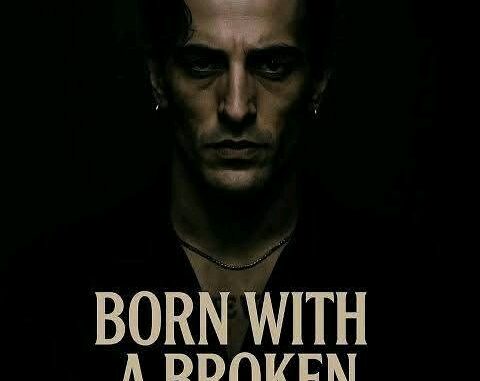
BREAKING NEWS::::::::What If Damiano David Stopped Music Today? The World Holds Its Breath as Netflix Unveils an Emotional Docuseries About the Rock Legend’s Silence…..READ MORE…….
What If Damiano David Stopped Music Today? The World Holds Its Breath as Netflix Unveils an Emotional Docuseries About the Rock Legend’s Silence
When the world first met Damiano David, it was clear that he was not just another frontman — he was a revolution in eyeliner, leather, and raw, unapologetic energy. The Måneskin vocalist, who stormed into global fame after the band’s Eurovision 2021 victory, has spent the last several years redefining what it means to be a rock star in the 21st century. But now, a single question has shaken both fans and critics alike: what if Damiano David stopped music today?
That haunting possibility is at the heart of a groundbreaking new Netflix docuseries, “The Sound of Silence: Damiano David’s Final Note,” which premiered this week to emotional reactions worldwide. More than a biographical account, the series explores an unsettling hypothetical — a world without Damiano’s voice, his spirit, and his art — while peeling back the layers of the man behind the myth.
—
A Generation’s Rock Icon
Born in Rome in 1999, Damiano David didn’t just front a band — he resurrected a genre. Måneskin, a word meaning “moonlight” in Danish, began as a group of teenagers busking on the streets of Italy. By their early twenties, they were topping global charts, selling out arenas, and bringing rock back into mainstream consciousness.
But Damiano’s allure has never been about nostalgia. His voice — gravelly yet melodic, defiant yet vulnerable — became the anthem of a generation seeking authenticity in an age of digital façades. His performances blurred the lines between masculinity and femininity, rebellion and vulnerability, chaos and control.
“Damiano represents the rebirth of raw expression,” says Italian music critic Luca Moretti, interviewed in the docuseries. “He reminded the world that rock is not dead — it was just waiting for someone brave enough to feel again.”
—
The Netflix Project: Art Meets Absence
“The Sound of Silence” opens with an eerie montage — clips of Damiano performing to roaring crowds fade into a silent stage, his microphone resting motionless. The narration asks: “If Damiano David stopped singing today, would the world still hear him?”
The question is both literal and metaphorical. The documentary, produced by Netflix Italia in collaboration with Pulse Films, uses interviews, archival footage, and dramatic re-enactments to explore the impact of Damiano’s hypothetical withdrawal from music. The premise is chilling yet profound: how does the world react when the voice that defined an era suddenly goes silent?
Over four episodes, the series dives deep into his life, tracing his evolution from a shy teenager to an international superstar — and the pressures that come with fame. But rather than focusing on scandal or celebrity gossip, “The Sound of Silence” examines the emotional cost of creativity and the weight of being a global icon at just 26.
—
Episode Breakdown: From Fire to Stillness
Episode 1 — “The Rise of a Rebel” chronicles the explosive ascent of Måneskin after Eurovision 2021. Through backstage footage and candid interviews with bandmates Victoria De Angelis, Ethan Torchio, and Thomas Raggi, viewers relive the band’s transformation from street performers to rock royalty. “We were just kids,” Victoria says in one clip, “but Damiano had a vision bigger than all of us.”
Episode 2 — “Fame and the Mirror” delves into the isolating nature of success. Damiano’s magnetic confidence often hid internal battles with exhaustion, scrutiny, and self-doubt. The series reveals never-before-seen journal entries and studio recordings, where Damiano grapples with the expectations placed upon him.
In one haunting moment, he whispers into the studio mic: “What happens when the noise stops?” That line, once dismissed as a passing thought, becomes the emotional anchor of the entire series.
Episode 3 — “The Silence” is the most intimate. It imagines a world where Damiano decides to stop making music — a creative burnout, an artistic exile, or a conscious rebellion against fame. The reactions from fans, journalists, and fellow artists are heartbreaking. Streets are filled with murals, tribute concerts erupt across Europe, and social media drowns in nostalgia. “It feels like losing Bowie again,” says one fan tearfully.
Finally, Episode 4 — “The Echo” explores legacy. Even in silence, Damiano’s influence endures — inspiring young artists to pick up guitars, to dress without fear, to sing without restraint. The episode closes with his reflection: “Silence isn’t the end. It’s just another form of music.”
—
The Emotional Weight of Hypothetical Loss
The docuseries doesn’t announce Damiano’s retirement — in fact, Netflix makes it clear that the scenario is fictional. But the emotional gravity feels real because fans have seen hints of weariness behind his rebellious exterior. The intensity of fame, constant touring, and global scrutiny have left their mark on him.
Music psychologist Dr. Serena Bellotti, who appears in the documentary, explains:
> “Artists like Damiano live in extremes. They feel everything — passion, pain, pressure — at amplified volumes. Imagining him going silent isn’t just about music ending; it’s about confronting the human cost of being an icon.”
For fans, the thought of a world without Damiano is unbearable. His lyrics — often drenched in emotion, sexuality, and defiance — have become a lifeline for those who feel misunderstood. His voice represents freedom, self-expression, and rebellion against conformity.
On X (formerly Twitter), hashtags like #ThankYouDamiano and #TheSoundOfSilenceNetflix trended worldwide within hours of the premiere. Fans shared stories of how his music helped them through heartbreak, identity struggles, or depression. “If he ever stopped singing,” one fan wrote, “I hope he knows his voice already changed lives forever.”
—
Måneskin’s Reactions: Between Fiction and Reality
While the docuseries is hypothetical, Måneskin’s other members were actively involved in its creation. Victoria De Angelis described the experience as “therapeutic,” admitting that the storyline forced the band to reflect on their own fears of impermanence.
“It’s strange,” she said in a Netflix featurette. “We made this show to imagine what life would be like without Damiano’s voice — but in doing so, we realized how deeply connected we all are. He’s more than our frontman. He’s our heartbeat.”
Thomas Raggi added, “The silence part isn’t about quitting. It’s about balance. Maybe sometimes the loudest message you can send is through stillness.”
Even Damiano himself contributed voiceovers to the project, though he has yet to comment publicly about its emotional impact.
—
A Global Reaction: The Silence Heard Around the World
The docuseries’ release has sparked intense discussion among critics, musicians, and fans. Some view it as a poetic exploration of fame’s fragility; others interpret it as Damiano’s subtle message about mental health and artistic freedom.
Music journalist Anaïs Varela of Rolling Stone Italia called it “a love letter to art and a warning to those who mistake the artist for the product.”
Meanwhile, global rock icons have shared their admiration. Billie Eilish, Harry Styles, and Dave Grohl all posted tributes online, praising Damiano’s courage in allowing such introspection to be filmed. “If silence is his art now,” Grohl wrote, “then it’s still louder than most of what’s out there.”
Netflix executives have revealed that “The Sound of Silence” is already among their most-watched European releases of 2025, with over 40 million views in its first week.
—
The Power of a Voice — and Its Absence
The fascination surrounding Damiano’s hypothetical silence reveals something profound about modern music culture: we are terrified of losing genuine voices. In an era dominated by algorithms and manufactured hits, Damiano David represents the rare artist who bleeds truth into every lyric.
His potential silence isn’t just about the absence of sound — it’s about the void left in a generation that saw itself through his rebellion. The Sound of Silence forces viewers to confront how deeply an artist can shape collective identity.
As one scene in the final episode poignantly states:
> “We never realize how much someone’s voice carries us — until the day we imagine it gone.”

—
Could It Really Happen?
While there’s no official indication that Damiano plans to step away from music, the docuseries has reignited speculation about his future. He has hinted in past interviews about the toll fame takes, admitting that sometimes he dreams of “disappearing into quiet places.”
Yet, silence for Damiano may not mean absence. It could mean evolution — a shift from noise to nuance, from spectacle to introspection. As he says in the documentary’s closing moments:
> “If I ever stop singing, don’t call it the end. Call it the pause before the next verse.”
—
Conclusion: A World That Still Listens
Whether real or imagined, the thought of Damiano David walking away from music is enough to make the world pause. The Sound of Silence captures that pause — the collective breath of millions who have danced, cried, and lived through his songs.
In the end, the Netflix series isn’t about silence at all. It’s about resonance — how one artist’s courage to be vulnerable continues to echo, even when the stage lights dim.
Because if Damiano David stopped music today, the world would not forget him. It would listen — to the silence he left behind, and to the countless voices he inspired to sing louder in his honor.
Leave a Reply